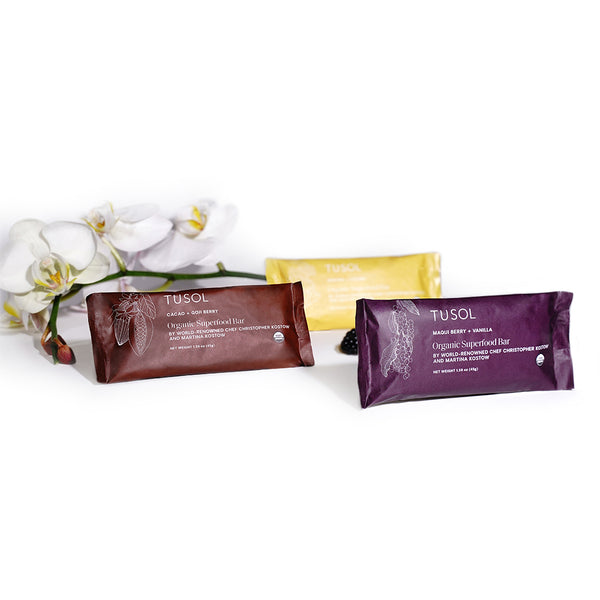"There's a strong link between the health of your thyroid and high cholesterol. If you have high cholesterol, you may also have an imbalance of hormones."
The media likes to sell the idea that cholesterol is inherently bad. As a result, this mindset is adopted by almost every American. Numerous journal articles have promoted the idea that low serum cholesterol is better for the health of the patient. The theory then exists that cholesterol causes heart disease. This translates directly to the traditional unhealthy food pyramid that is still taught in schools. It asserts that certain foods like red meat, dairy, and eggs cause high cholesterol. Years ago, when these ideas were becoming commonplace, we simply didn't know that the gut bacteria are responsible for influencing cholesterol. Now do we not only understand the link between gut bacteria and cholesterol, but we also know that is not cholesterol that causes heart disease, rather inflammation does. I will get to the link between cholesterol and hormones, but first, it's important to know cholesterol works since this is where hormones begin.What is cholesterol?
-LDL ("loser" or "bad" cholesterol) delivers cholesterol to cells. While this is often considered bad cholesterol, the real question is "what makes LDL oxidize in a way that causes cellular damage?" -HDL ("good" cholesterol) transports cholesterol molecules to liver to get metabolized. -Triglycerides are a marker of sugar/carbohydrate intake, and its energy for later use. There are a few more cholesterol markers (such as particle sizes and the ratio), but these are the main three to consider. Cholesterol is highly protective, anti-inflammatory and acts as an antioxidant. When oxidized, it loses its protective qualities. This oxidized form is most commonly found in people with atherosclerosis (build up of cholesterol plaque in arteries).How does Cholesterol affect your hormones?
Cholesterol is a building block for steroid hormones. This includes the stress and sex hormones. It also plays a critical role in absorption of Vitamin D, and generating bile for digestion. With the exception of red blood cells, all cells have mitochondria where the manufacturing from cholesterol to hormones takes place. Thyroid hormone, specifically T3 (the active form) and Vitamin A (as in retinol) are required to convert cholesterol into steroid hormones in the liver. Without this process, your hormone levels will be off balance. Aging then seems to be a state of cholesterol starvation. In other words, the ability to make cholesterol diminishes as we age. Along with other results of aging - including reduced production of hormones such as DHEA and progesterone - the change in cholesterol production affects many functions in the body. This process becomes a domino effect... T3 is a major regulator of mitochondria activity. With low thyroid levels of the hormone T3, your mitochondria get negatively impacted. Low mitochondria activity results in accelerated aging, diabetes, low levels of energy, and lack of sleep. Almost 100 years ago, Russian experiments showed that feeding rabbits cholesterol caused them to develop atherosclerosis. However, subsequent experiments show that rabbits are unusual in responding that way to cholesterol, and that even rabbits don't develop atherosclerosis from cholesterol if they are given thyroid T3 hormone to regulate it. Basically, when your thyroid and liver are not functioning properly, and your liver is not converting cholesterol into thyroid hormone, the use of cholesterol is slowed, allowing the toxic form of cholesterol to accumulate.How to balance your cholesterol naturally
Protect your thyroid and liver- Don't skip breakfast, the thyroid and liver don't run on fats, they run on glucose. Thyroid hormones drop when intermittent fasting. It causes a drop in thyroid hormone T3 and an increase in reverse T3 (rT3). Hormone T3 is crucial for the body to use energy, but during fasting the body wants to conserve as much energy as possible, because it's unclear when food will be eaten again.
- Do not eliminate whole food carbohydrates out of your diet; you need the fiber, antioxidants, and fructose for your thyroid and liver.
- You need vitamin A, as in retinol, this is found in animal products. Always go grass-fed.
- Magnesium! magnesium, magnesium!
- Get copper from whole food full spectrum vitamin C, not a bottle, ascorbic acid does not have copper.
- Vitamin E protects and regulates cholesterol from oxidizing, it also protects the liver and thyroid. Get it from fats, animal fats that is...grass-fed ghee, grass-fed butter, grass-fed milk, grass-fed liver!
- Get sun daily, the light spectrum of the sun does wonders for your cells. Cholesterol is also used to make Vitamin D, when you sun bathe.
- Consume coconut oil to encourage the utilization of existing cholesterol and other saturated fats that do not oxidize in the body.














